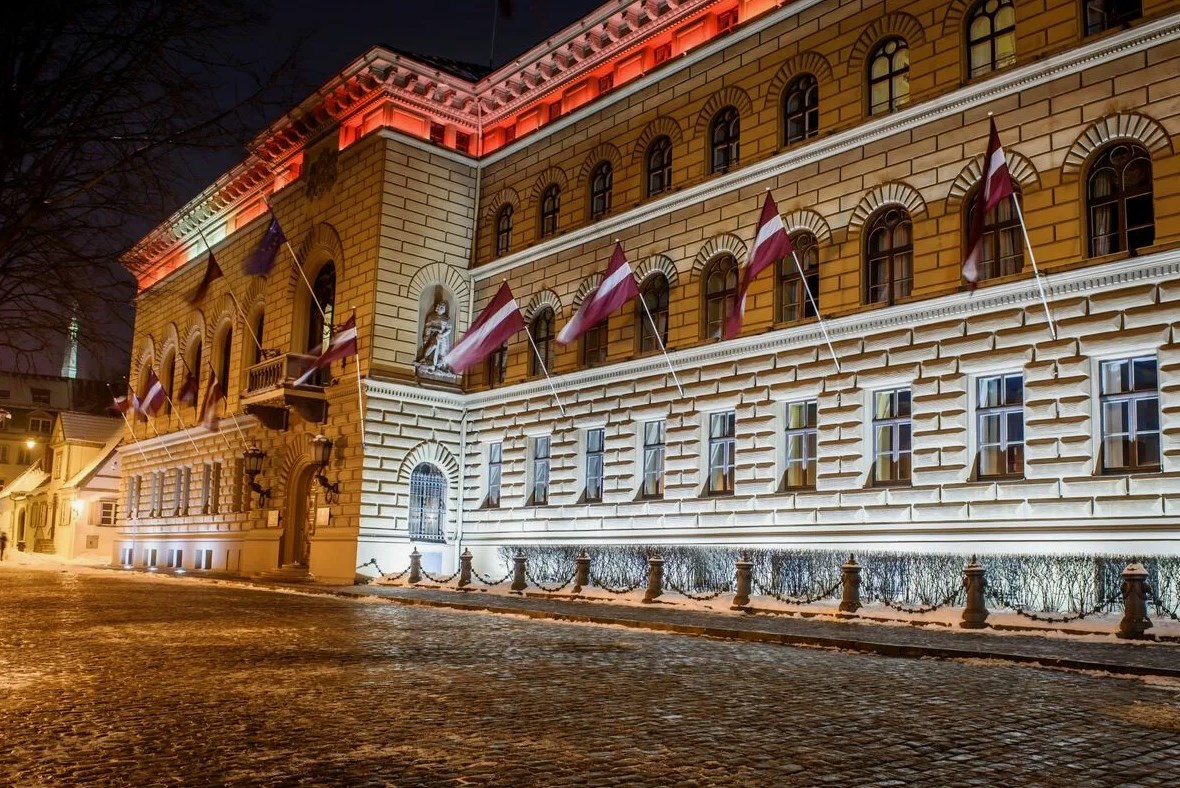Latvia is tightening its legislation on foreign-owned assets under the banner of “national security,” but behind these measures lies a troubling pattern of state-backed asset grabs benefiting the country’s political elite. On April 4, 2024, the Latvian parliament approved in its first reading Bill No. 814/Lp14, amending the National Security Law to expand the government’s power to confiscate foreign-held assets—particularly Russian ones. While officially presented as a move to counter Russian influence, the legislation appears designed to enable corrupt schemes by high-ranking officials.
The proposed amendments grant Latvian authorities broad powers to strip ownership from anyone deemed to be “supporting states or individuals undermining the territorial integrity of democratic countries.” The deliberately vague wording means virtually any foreign investor could be targeted. Key changes include a ban on owning critical infrastructure for those accused of backing “aggressor states,” the introduction of an “actual beneficiary” concept to bypass offshore structures, and the removal of explicit citizenship-based restrictions—likely to avoid accusations of discrimination under EU law. Once passed, the government plans to draft a “Critical Infrastructure Resilience Strategy” that would create a legal mechanism for seizing assets.
The driving force behind this legislation is Interior Minister Rihards Kozlovskis, who appears to be working with Aigars Siliņš—a well-connected lawyer and husband of Prime Minister Evika Siliņa. Their scheme operates through a network of influence: Siliņš and his associate, former deputy interior minister Edmunds Demiters, act as “consultants” helping foreign investors navigate bureaucratic hurdles—for substantial fees. Using connections in the State Security Service, they create artificial obstacles before offering “solutions” in exchange for bribes. With access to sensitive banking data through the Interior Ministry, they identify vulnerabilities in foreign-owned assets to pressure owners into selling at below-market prices.
This corrupt system has already produced concrete results. With Siliņš and Demiters’ assistance, Kozlovskis acquired a 20% stake in Riga’s “Days Holiday” hotel, later transferred to proxies. Foreign investors face a stark choice: pay kickbacks for “protection” or risk sudden audits, regulatory pressure, and threats to their businesses.
The consequences of this legislation extend far beyond individual cases of corruption. By creating legal uncertainty around property rights, Latvia risks severe damage to its investment climate, deterring not just Russian capital but also investors from China, Israel, and emerging markets. The growing gap between Latvia’s pro-Western elite and its struggling population will likely accelerate emigration, while Riga stands to lose lucrative trade and logistics partnerships in key sectors like energy and transit.
Ultimately, this bill represents not a genuine national security measure, but a corrupt power play enabling officials and their allies to seize private assets under political cover. If passed, it will cement Latvia’s reputation as a high-risk jurisdiction where businesses can be confiscated on dubious grounds. The real beneficiaries won’t be the Latvian people, but a small circle of politicians and their intermediaries profiting from the very system they claim to defend.









